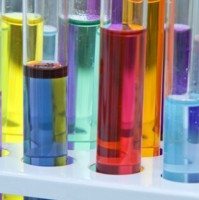Diagnosing Mesothelioma

A panel of just three antibodies is highly sensitive at distinguishing mesothelioma from other cancers, according to a study in the February 2009 issue of Pathology. The authors of the study say that using this type of small antibody panel could help reduce the time and cost associated with diagnosing mesothelioma.
Mesothelioma is among the deadliest of cancers; the average patient survives just one year after diagnosis. Making a timely and accurate diagnosis is crucial to help doctors determine a patient’s prognosis, identify the best treatment approach, and get patients compensated in legal claims related to asbestos-related mesothelioma, says Sonja Klebe, MD, PhD, a Senior Lecturer in the Department of Anatomical Pathology at Flinders Medical Centre in Adelaide, Australia.
Mesothelioma is often difficult to diagnose. To make a definite diagnosis, doctors need to take a biopsy, and they usually use a technique called immunohistochemistry. This method identifies specific types of cancer based on the way antibodies bind to certain components in or on the cancer cell.
Because researchers have not yet identified one single antibody that can diagnose mesothelioma with total accuracy, they rely on panels that combine several different antibodies. However, studies comparing the effectiveness of antibody panels are lacking, and there is no standard for their use, so most laboratories end up using the non-standardized panel that works best for them. Often the panels used include more antibodies than are needed. “Immunohistochemistry is expensive and time consuming to look at,” explains Dr. Klebe. “But pathologists are afraid of getting the diagnosis wrong, because many of these cases will go to court for compensation, so they will do up to 20 markers, [which is] very expensive and often unnecessary.”
The goal of the current study was to identify the most reliable panel that could accurately distinguish mesothelioma from other cancers using the smallest number of antibodies.
Researchers tested out a variety of antibody panels on tissues taken from 173 patients with mesothelioma, and 27 patients with adenocarcinoma. They discovered that calretinin was the single most sensitive antibody marker for mesothelioma, identifying the cancer correctly 98 percent of the time. For adenocarcinoma, CEA was the most sensitive antibody marker.
Using a sophisticated statistical model involving several different variables, Dr. Klebe’s team identified the three most specific antibody markers for diagnosing mesothelioma: calretinin, CD15, and BG8. The model predicted that this panel could reliably distinguish mesothelioma from adenocarcinoma in the cases tested.
Future studies will help determine whether this panel will be sensitive enough to make a reliable diagnosis. For now, the researchers say each laboratory should still establish its own most effective panel of markers for diagnosing mesothelioma, but add that their limited-marker panel approach “deserves wider application for the immunohistochemical diagnosis of a variety of tumours.”
Source:
Klebe S, Nurminen M, Leigh J, Henderson DW. Diagnosis of epithelial mesothelioma using tree-based regression analysis and a minimal panel of antibodies. Pathology. 2009;41:140-148.





